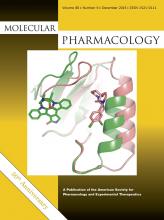Abstract
AMP-activated protein kinase (AMPK), an important downstream effector of the tumor suppressor liver kinase 1 (LKB1) and pharmacologic target of metformin, is well known to exert a preventive and inhibitory effect on tumorigenesis; however, its role in cancer progression and metastasis has not been well characterized. The present study investigates the potential roles of AMPK in inhibiting cancer-cell migration and epithelial-to-mesenchymal transition (EMT) by regulating the canonical transforming growth factor β (TGF-β) signaling pathway, an important promoting factor for cancer progression. Our results showed that activation of AMPK by metformin inhibited TGF-β–induced Smad2/3 phosphorylation in cancer cells in a dose-dependent manner. The effect of metformin is dependent on the presence of LKB1. A similar effect was obtained by expressing a constitutive active mutant of AMPKα1 subunit, whereas the expression of a dominant negative mutant of AMPKα1 or ablation of AMPKα subunits greatly enhanced TGF-β stimulation of Smad2/3 phosphorylation. As a consequence, expression of genes downstream of Smad2/3, including plasminogen activator inhibitor-1, fibronectin, and connective tissue growth factor, was suppressed by metformin in a LKB1-dependent fashion. In addition, metformin blocked TGF-β–induced inteleukin-6 expression through both LKB1-dependent and -independent mechanisms. Our results also indicate that activation of LKB1/AMPK inhibits TGF-β–stimulated cancer cell migration. Finally, TGF-β induction of EMT was inhibited by phenformin and enhanced by knockdown of LKB1 expression with shRNA. Together, our data suggest that AMPK could be a drug target for controlling cancer progression and metastasis.
Footnotes
- Received April 26, 2015.
- Accepted September 22, 2015.
This work was supported by the National Nature Science Foundation of China (Grants 81171952, 81272926, 81460374, 31460304) and in part by the National Institutes of Health (Grant R21EY024388). H. Lin and H. He were supported by scholarships for postgraduate study from Nanchang University.
- Copyright © 2015 by The American Society for Pharmacology and Experimental Therapeutics
MolPharm articles become freely available 12 months after publication, and remain freely available for 5 years.Non-open access articles that fall outside this five year window are available only to institutional subscribers and current ASPET members, or through the article purchase feature at the bottom of the page.
|






